
European Sky Shield: what’s at stake for Switzerland?
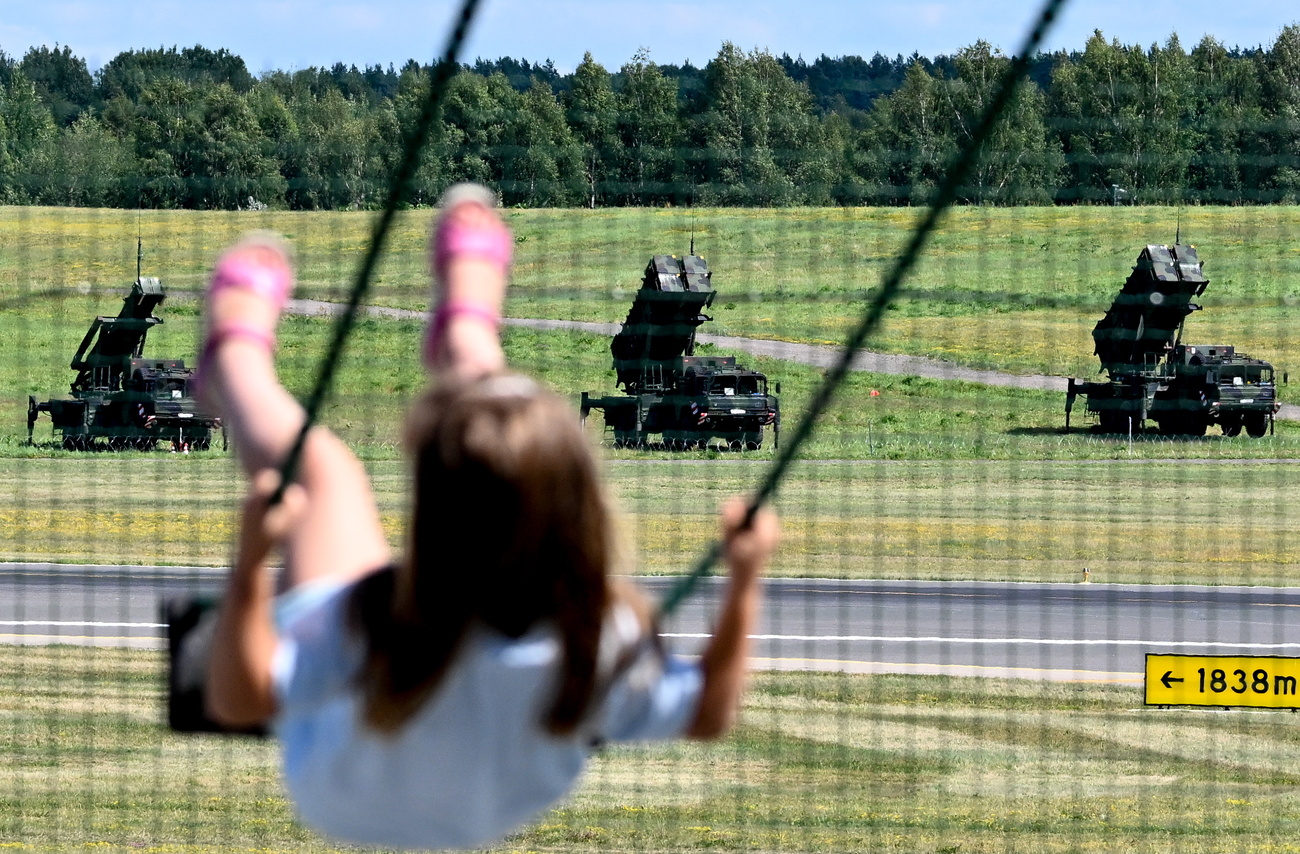
In April, the Swiss government approved Switzerland’s participation in the European Sky Shield Initiative, which seeks to build a unified air and missile defence system across Europe.
Debate has arisen among Swiss parliamentarians over whether the parliament should have a say in this decision and whether it aligns with Switzerland’s stance on neutrality. Here’s an overview of what the initiative entails and Switzerland’s role within it.
What is the European Sky Shield Initiative?
When Russia invaded Ukraine in February 2022, it set off alarm bells across Eastern Europe, with many countries fearing escalation and potential border threats. While outright aggression from Russia towards Western European countries seems unlikely for now, apprehension resonates throughout the continent.
This is why in August 2022, German Chancellor Olaf Scholz proposed the European Sky Shield Initiative (ESSI). The goal is to rally European states to coordinate the procurement of air and missile defence systems to cut costs for individual countries and to collaborate in terms of training, maintenance and logistics. This protective shield over European airspace is expected to become operational no earlier than 2025.
So far, 21 countries have joined the initiative, with 19 of them being NATO members. Switzerland and Austria are the only neutral countries that are not part of NATO but agreed to join the ESSI.
What role will Switzerland play in the ESSI?
Switzerland signed a declaration of intent to join the initiative last summer, and in April the Swiss government approved the participation. On Tuesday, a committee of the House of Representatives asked the Swiss parliament to formally approve the country’s participation in the initiative. But there are still objections being raised against the plan by both left- and right-wing parties.
The memorandum of understanding that Switzerland signed is technically not legally binding. It simply provides a general framework for participating states and Switzerland is “free to decide where and to what extent it participates in the ESSI,” the State Secretariat for Security Policy (Sepos) told SWI swissinfo.ch in an emailed statement.
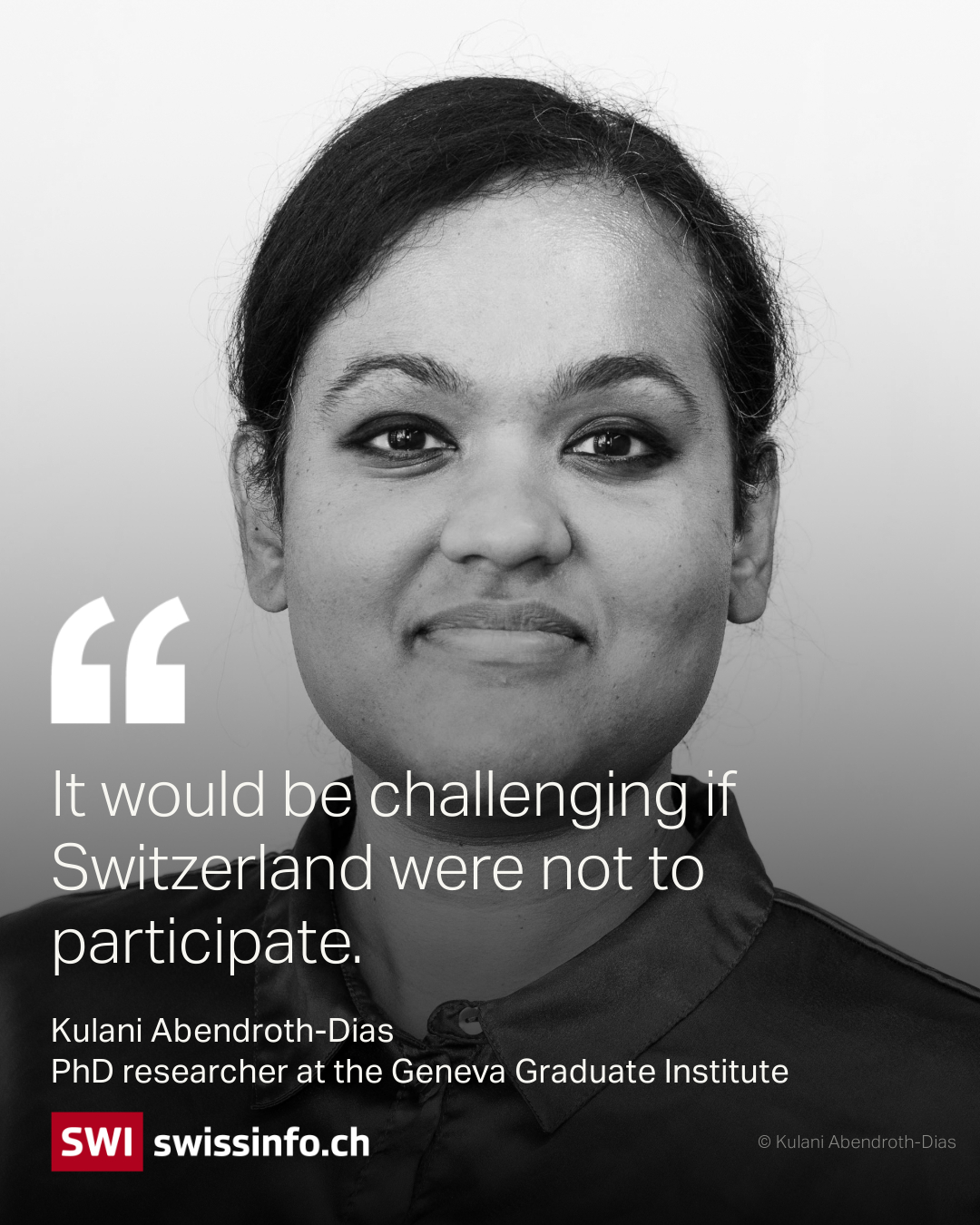
“Geographically and geopolitically, it would be challenging if Switzerland were not to participate. This is a great opportunity for the country to contribute to a harmonisation of Europe’s air defence system, which is currently highly fragmented,” says Kulani Abendroth-Dias, PhD researcher in international relations and political science at the Geneva Graduate Institute. “If one part of Europe is not involved in the initiative, then the defence landscape becomes even more fragmented, posing a threat to the whole of Europe,” she adds.
Is Swiss neutrality at risk?
According to Sepos the initiative aligns with Swiss neutrality. “The memorandum of understanding includes a suspension clause concerning Switzerland’s neutrality,” writes Sepos. Both Switzerland and Austria outlined their reservations under their neutrality laws in a supplementary declaration in the summer of 2023.
Yet some, especially the right-wing parties, fear that this participation might undermine Swiss neutrality. “The Swiss government would compromise Switzerland’s sovereignty in the defence of its airspace,” wrote the Swiss People’s Party in a press release.
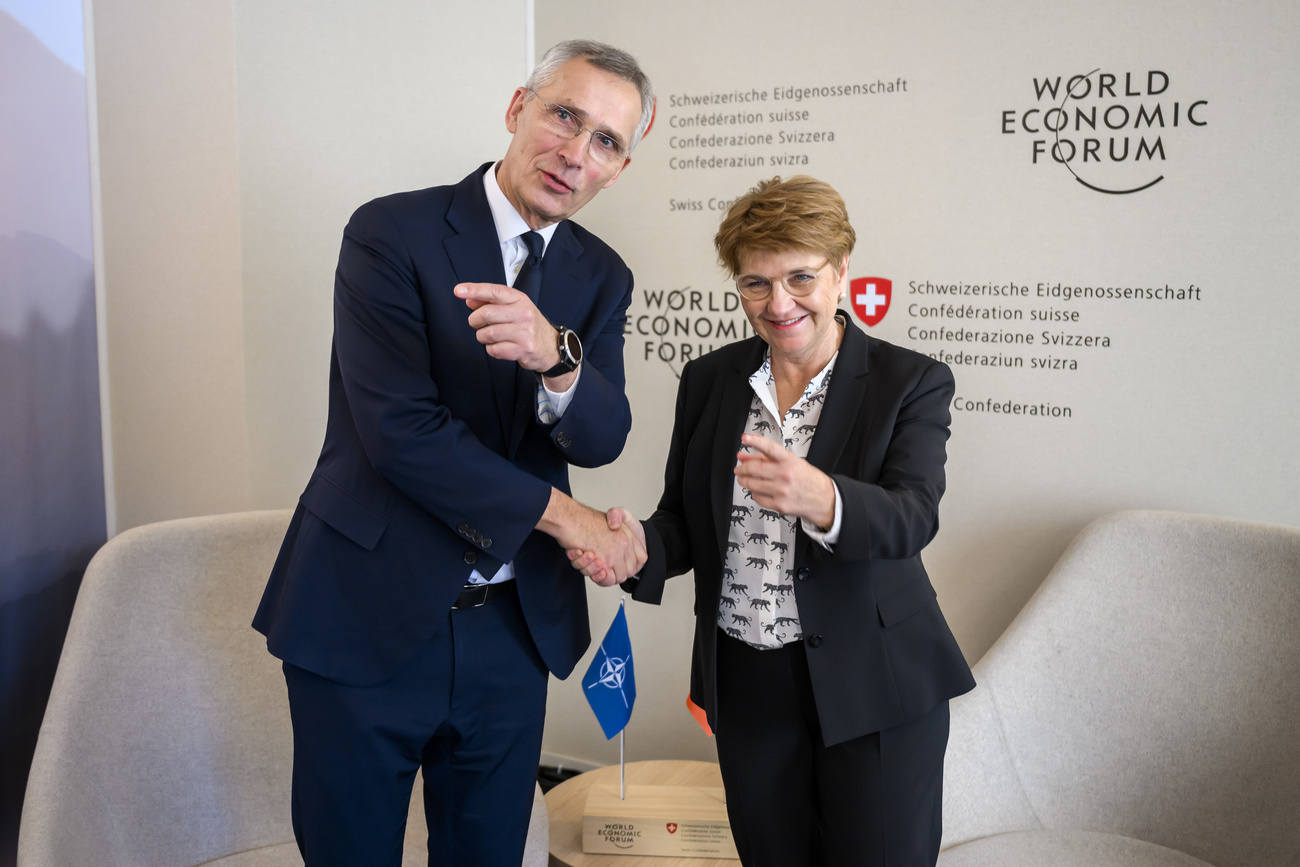
More
Switzerland and NATO: just flirting or the start of a wild marriage?
Concerns have also emerged from the left. The Group for a Switzerland without an Army lamented a “rapprochement with NATO decided over the heads of the population” and criticised “the decision being made without a comprehensive political debate on Switzerland’s security and neutrality”.
This discussion marks the most recent in a series of debates surrounding Swiss neutrality, a principle that has come under significant scrutiny since Russian’s invasion in Ukraine, as SWI swissinfo.ch journalist Marc Leutenegger explains in this article.
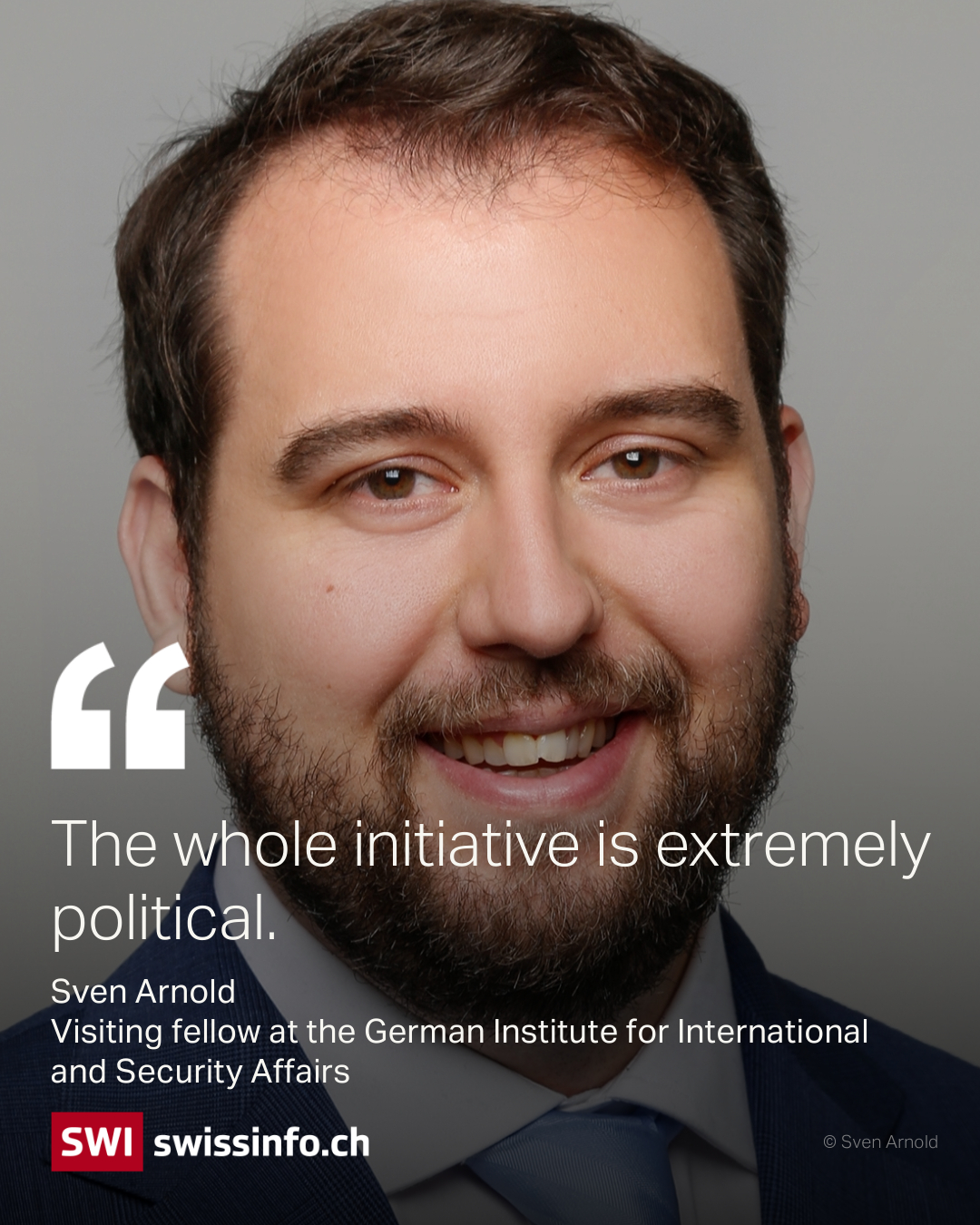
What are the key concerns about the ESSI?
The project has also proven divisive in Europe. “The whole initiative is extremely political. Although it’s important to strengthen Europe’s air defence system, we must be aware that we won’t be able to protect the entire NATO or European territory. The project was designed upside-down: it should have originated from a comprehensive threat analysis,” explains Sven Arnold, visiting fellow at the German Institute for International and Security Affairs.
While an immediate threat from Russia isn’t on Europe’s doorstep, “the conflict in Ukraine will eventually be over, and Russia will regain its long-distance attack capabilities, providing it with leverage to potentially blackmail the West,” explains Simon Stocker, a researcher at the think-tank Avenir Suisse.
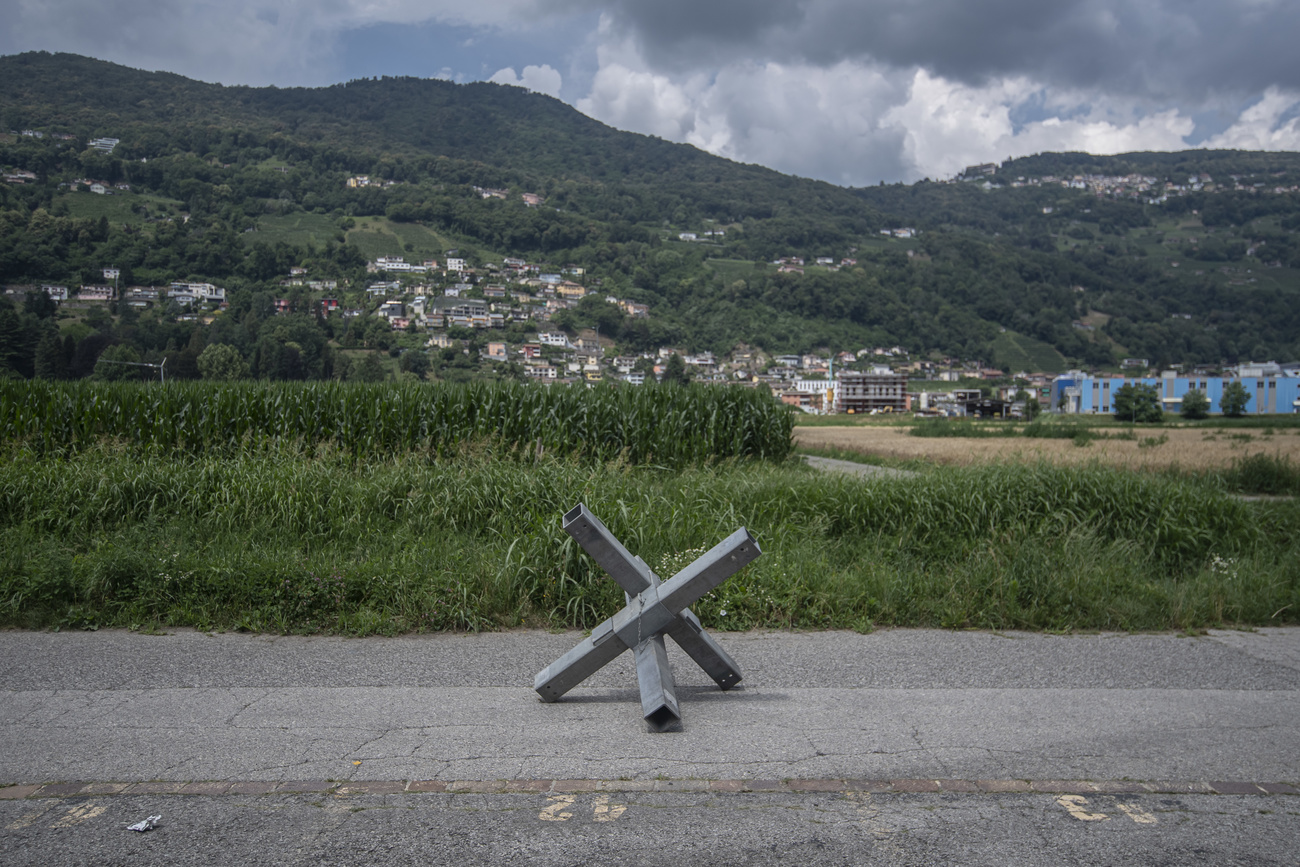
More
Explainer: Russia pushes Europe’s neutral states closer to NATO
Another challenge is the fact that France, Italy and Spain haven’t joined, leading some to question the viability of the project altogether. France, whose participation some argue is indispensable for the project’s success, has criticised how the plan primarily focuses on US or Israeli systems rather than European-manufactured ones.
The heart of the issue is that US defence equipment, for example, is more standardised and readily deployable. “I think the key hurdles facing the ESSI are the military preparedness of the nations to adjust to a more unified European system and the origin of these systems. Who will produce these shields and how will we harmonise training in the use of systems across the nations?” asks Abendroth-Dias. She believes it’s crucial to foster the right business environment to guarantee that “European companies can manufacture these systems, though it certainly takes time.”
If the challenges at the European level span from the engagement of strategic nations to the integration of these systems into NATO’s framework, for Switzerland, the concern extends beyond neutrality. It’s also a financial matter.
“I believe the biggest challenge we face in Switzerland is our limited financial resources and security doesn’t come cheap. However, I would argue this is also an opportunity because purchasing these defence systems collectively will ultimately be more cost-effective than buying them individually,” explains Stocker.

What’s next for Switzerland?
The declaration of accession to the ESSI Cooperative Procurement Framework Memorandum of Understanding will be adopted, provided the Foreign Affairs and Security Policy committees do not raise any significant reservations.
While some political groups suggest that Swiss voters should have a say in this decision, Defence Minister Viola Amherd clarified that the government holds the decision-making authority on this matter.
“Whether and to what extent Switzerland will participate in individual projects and programmes is still open,” concludes Sepos.
Edited by Virginie Mangin/amva

In compliance with the JTI standards
More: SWI swissinfo.ch certified by the Journalism Trust Initiative
































You can find an overview of ongoing debates with our journalists here . Please join us!
If you want to start a conversation about a topic raised in this article or want to report factual errors, email us at english@swissinfo.ch.